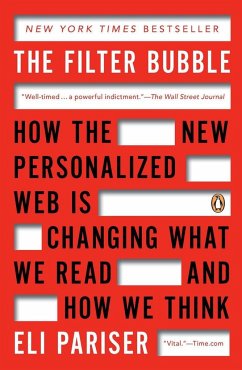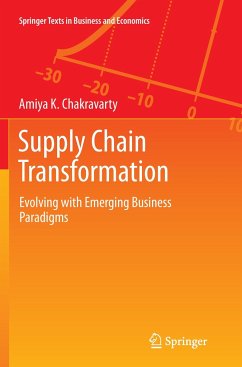In December 2009, Google began customizing its search results for all users, and we entered a new era of personalization. With little notice or fanfare, our online experience is changing, as the websites we visit are increasingly tailoring themselves to us. In this engaging and visionary book, MoveOn.org board president Eli Pariser lays bare the personalization that is already taking place on every major website, from Facebook to AOL to ABC News. As Pariser reveals, this new trend is nothing short of an invisible revolution in how we consume information, one that will shape how we learn, what we know, and even how our democracy works. The race to collect as much personal data about us as possible, and to tailor our online experience accordingly, is now the defining battle for today's internet giants like Google, Facebook, Apple and Microsoft. Behind the scenes, a burgeoning industry of data companies is tracking our personal information to sell to advertisers, from our political leanings to the hiking boots we just browsed on Zappos. As a result, we will increasingly each live in our own, unique information universe-what Pariser calls "the filter bubble." We will receive mainly news that is pleasant, familiar and confirms our beliefs-and since these filters are invisible, we won't know what is being hidden from us. Our past interests will determine what we are exposed to in the future, leaving less room for the unexpected encounters that spark creativity, innovation and the democratic exchange of ideas. Drawing on interviews with both cyber-skeptics and cyber-optimists, from the co-founder of OK Cupid, an algorithmically-driven dating website, to one of the chief visionaries of U.S. information warfare, THE FILTER BUBBLE tells the story of how the Internet, a medium built around the open flow of ideas, is closing in on itself under the pressure of commerce and "monetization." It peeks behind the curtain at the server farms, algorithms, and geeky entrepreneurs that have given us this new reality, and investigates the consequences of corporate power in the digital age. THE FILTER BUBBLE reveals how personalization could undermine the internet's original purpose as an open platform for the spread of ideas, and leave us all in an isolated, echoing world. But it is not too late to change course. Pariser lays out a new vision for the web, one that embraces the benefits of technology without turning a blind eye to its negative consequences, and will ensure that the Internet lives up to its transformative promise.

Google, Amazon und Facebook - alle wichtigen Internetfirmen versuchen, unsere Interessen möglichst genau zu treffen: Amazon schlägt Bücher vor, die uns gefallen können. Facebook filtert die unzähligen Nachrichten, die unsere Freunde verschicken. Und Google versucht, die Ergebnisse seiner Internetsuche so anzuordnen, dass sie den Geschmack des Nutzers treffen. Das hat einen großen Nachteil: Wir sehen im Internet immer öfter nur noch das, was sowieso unseren Interessen entspricht. Neue Anregungen bekommen wir kaum. Online-Aktivist Eli Pariser hat mit seinem Buch eine wichtige Debatte aufgegriffen. Ende Februar erscheint das Buch auf Deutsch.
bern.
Eli Pariser: Filter Bubble. Hanser, 19,90 Euro.
Alle Rechte vorbehalten. © F.A.Z. GmbH, Frankfurt am Main








